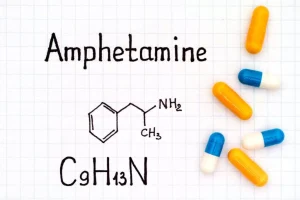
The highly addictive nature of methamphetamine is compounded by its affordability and the ease with which it is produced, with North America and East Asia having become established as heartlands for both consumption and manufacture. The paper discusses recent cultural depictions of the drug and also the role that mental health professionals may take in designing and delivering interventions to treat methamphetamine addiction. When someone has a meth addiction, it may seem like they will never be able to regain control over their life again.
What Happens When You’re on Crystal Meth?
- While dextromethamphetamine is a more potent drug, racemic methamphetamine is illicitly produced more often, owing to the relative ease of synthesis and regulatory limits of chemical precursor availability.
- Methamphetamine (meth) is a highly addictive synthetic stimulant.
- The highly addictive nature of methamphetamine is compounded by its affordability and the ease with which it is produced, with North America and East Asia having become established as heartlands for both consumption and manufacture.
- Stimulants may temporarily make someone with depression feel happier and have more energy.
For example, a person may feel compelled to gamble, despite harmful consequences, without ever using drugs or alcohol. In this article we will explore the symptoms and causes of meth addiction, how doctors diagnose and treat it, and when to speak with a healthcare professional. A national survey on people aged 12 or older shows that 0.6% of the U.S. population, or about 1.6 million people, may have a methamphetamine use disorder.
- It involves working with a therapist to develop a set of healthy coping strategies.
- Unless you use an approved methamphetamine medication under the direction of a doctor, there’s no recommended dose for meth.
- According to MethProject.org, the meth addiction factor is extreme—it’s “one of the most addictive substances” out there today.
- Understanding the causes of meth addiction is essential for offering help.
- Since illegal drugs are not regulated, there is no way to know how much methamphetamine is in each dose.
Side Effects Of Meth Addiction

A key difference between meth and amphetamines, however, is that greater amounts of meth pass into the brain when compared with a similar dose of amphetamines, making it a more potent stimulant. Methamphetamine (meth) is a highly addictive synthetic stimulant. It impacts the central nervous system, causing heart rate, breathing, temperature, anxiety, and paranoia to increase.
Addiction to Methamphetamines
In addition to the mechanisms of physical dependence, there are also social, experiential, and environmental factors that may place a person at greater risk of developing crystal meth addiction. The medically correct term for drug addiction is substance use disorder (SUD). However, it is important to note that although meth use does physically alter the brain, there is a difference between physical dependence and addiction. You can’t take medication specifically approved to treat meth. But substance use treatment with medical detox and behavioral therapies for addiction can help you recover from meth use disorder.
- It has very limited use in treating obesity and attention deficit hyperactivity disorder (ADHD).
- Some of these drugs can be extremely dangerous, and thus, getting professional help leads them to treatment programs and support communities so that they are not alone as they recover.
- Effective treatment options include behavioral therapies and motivational incentives.
- Find the latest science-based information about drug use, health, and the developing brain.
- Your odds of harmful effects go up if you put meth into your vein with a needle.
- You can have physical and psychological symptoms when you stop using meth.
Why is Meth so Addictive?

Some of these drugs can be extremely dangerous, and thus, getting professional help leads them to treatment programs and support communities so that they are not alone as they recover. It’s heart-wrenching to watch someone you care about struggle with meth addiction. You want to help, but knowing how to approach the situation can feel overwhelming. The question on your mind might be, “How do you help a Meth Addict? meth abuse ” ’ It’s a journey of study and learning bumps along the way, but there is the knowledge that with enough education, you can assist them when they need it most.

Effects of Meth Addiction

We stand as your dedicated partner in the journey towards mental health and well-being. Our comprehensive platform offers invaluable resources and insights into managing mental health challenges and overcoming substance abuse. Through our award-winning programs, we provide effective strategies for relapse prevention, ensuring a lasting and transformative recovery experience.
